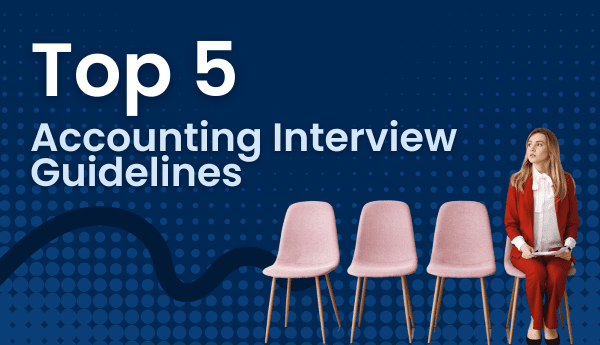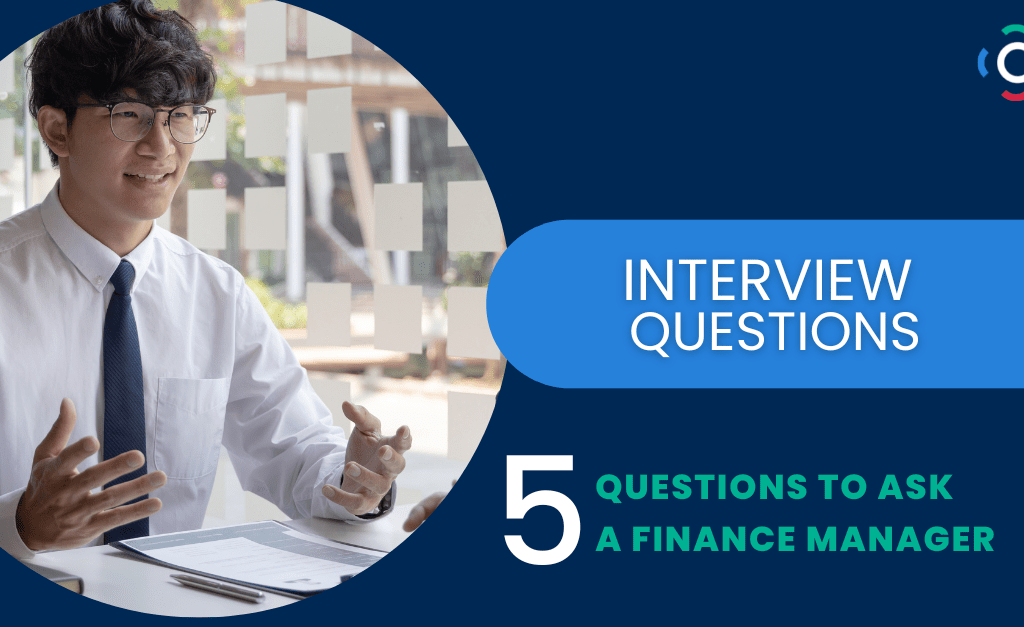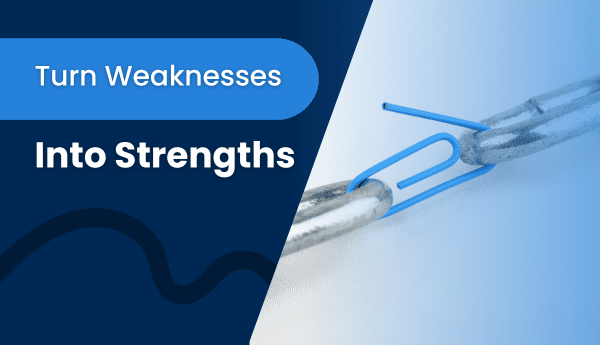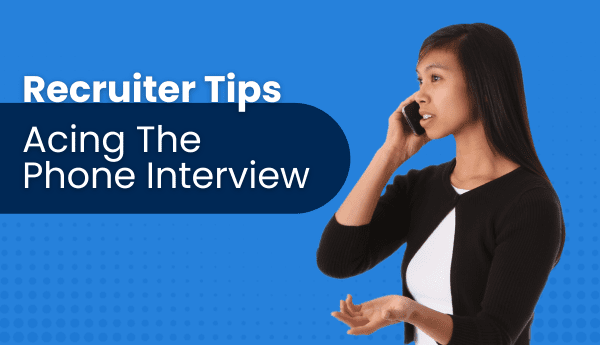When you’re interviewing candidates for an accounting job, there’s no single recipe for success. But there are accounting interview guidelines you can follow that will help you find the best talent for the role.
Whether you’re an HR representative, an internal recruiter, or a senior-level finance executive looking to add to your finance team, you know how challenging interviewing accountants can be. Accounting professionals speak their own language; they have their own specialized skills and qualifications and you need to be able to ask the right questions to find the best hire.
Interviewing accountants isn’t quite like baking cake – there’s no single recipe you can follow to deliver results. But there are some general principles you can use to ensure both you and the candidate have a productive and informative interview. These five accounting interview guidelines below will increase your chances of hiring a quality candidate who fits your company’s objectives and culture.
Research in advance
We can’t stress enough the importance of researching a potential hire in advance. In this day and age, with social media and networking sites overtaking job boards, looking into a candidate’s professional background is as easy as entering a keyword or search phrase.
In particular, check the candidate’s LinkedIn profile; a smart and serious jobseeker will have taken the time to produce a compelling summary. Evaluate the online brand that the candidate has developed.
Keep an eye out for any information from a candidate’s online profile that they may have left off their resume (deliberately or otherwise). For example, you may notice that a candidate has experience in an industry or organization that may be relevant to the role you are trying to fill. At the interview, you can follow up with the candidate and ask them to elaborate upon that experience. In this way, you can gain insight into how a candidate succeeded (or struggled) in a position similar to the one you’re hiring for.
We can’t stress enough the importance of researching a potential hire in advance.
Open-ended questions
As a rule of thumb, open-ended or situational questions are your best means of developing a real sense of a candidate’s strengths and weaknesses. Like a math problem in which you are asked to show your work, an open-ended question gives you a sense of the candidate’s problem-solving capabilities, and the kind of reasoning or logic they will bring to bear upon an issue.
For example, if you’re looking to hire for a more senior managerial role, you might ask the candidate to identify the challenges inherent in achieving a particular goal (e.g., reducing reporting errors by a certain margin or percentage). If a candidate can identify challenges, then they are also more likely to be able to formulate solutions.
Explain successes
Don’t just inquire into a candidate’s skills or experiences; ask them about their successes and accomplishments, too. Remember: successful people tend to remain successful.
Ask potential hires about their achievements in their previous role. If their answers include the royal “we,” don’t be afraid to ask them to elaborate upon their specific contributions. While it’s important that candidates work well in a team, it’s also important that they be able to achieve success independently. You want a team player who can still perform individually – not an automaton who coasts off the success of others.
Purposeful choices
The interview is a good opportunity for you to explore a potential hire’s short- and long-term career objectives. Asking a candidate as to how the role aligns with both their immediate and distant goals will help you determine how purposeful, motivated, and proactive they are about their careers.
Don’t just inquire into a candidate’s skills or experiences; ask them about their successes and accomplishments, too.
Are they interested in the role, for example, because it offers them a competency that they wouldn’t be able to acquire otherwise? Candidates who express a desire for professional growth and development are valuable because they have a willingness to adapt to new challenges and are not afraid to take on additional levels of responsibility, if necessary.
Get technical
It’s important to drill down into a potential hire’s technical knowledge and skills, so that you know how proficient they are with Excel, how long they’ve been certified as an accountant, and so on. Someone who is genuinely qualified for a role will be able to explain its specific nuances and have command of the specialist terminology. Their response will tell you if they have an understanding of the requirements for the position, beyond their paper qualifications.
Follow these accounting interview guidelines to streamline your interviewing process. The result should be a focused and capable hire, ready to embrace the challenges of the role and drive value for your organization.
What rules do you, as a hiring manager or HR professional, follow to ensure you run a successful accounting interview? Share your tips in the comments!
Let us know what you think! At Clarity Recruitment, we’re always interested in hearing from accounting and finance professionals like yourselves, who are ready for new, exciting opportunities that can take their careers to the next level. And be sure to follow us on LinkedIn for more great tips and advice!




